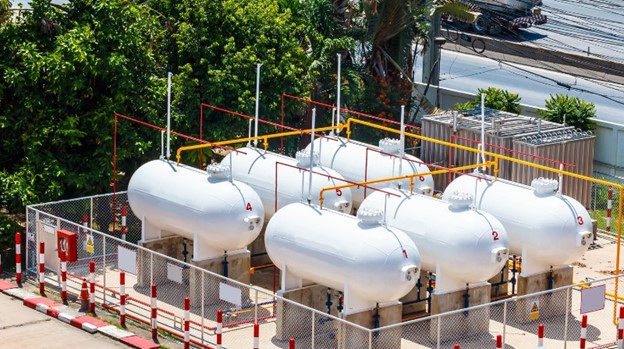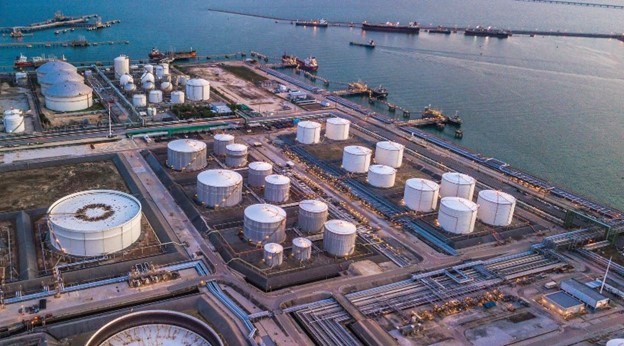What is Gas to Liquids (GTL) technology?
GTL technology is a process that converts natural gas or other gaseous hydrocarbons into liquid hydrocarbons, such as synthetic fuels, lubricants, and other valuable products. This technology involves several steps:
- Syngas: The first step is to convert gaseous hydrocarbons (like natural gas or methane) into synthesis gas, also known as syngas. This is typically done through a process called steam reforming or partial oxidation, where the gas is reacted with steam or oxygen to produce a mixture of carbon monoxide and hydrogen.
- Fischer-Tropsch Synthesis: The syngas produced in the gasification step is then passed through a catalyst in a Fischer-Tropsch reactor. This catalyst facilitates a chemical reaction that converts the syngas into liquid hydrocarbons, such as diesel, gasoline, and jet fuel. The Fischer-Tropsch process involves a series of reactions that lead to the formation of hydrocarbons with varying chain lengths.
- Product Refining: The liquid hydrocarbons produced through Fischer-Tropsch synthesis are then refined to remove impurities and adjust their properties to meet specific product requirements. This refining process may involve distillation, hydrocracking, and other techniques commonly used in petroleum refining.
Advantages of GTL technology
GTL technology offers several advantages, including:
Diversification of energy sources: It provides an alternative way to produce liquid fuels from natural gas, reducing reliance on crude oil.
Cleaner fuels: GTL products often have lower sulfur content and fewer impurities compared to traditional petroleum-based fuels, leading to reduced emissions of pollutants when burned.
Monetization of stranded gas reserves: GTL technology can be used to convert stranded or remote natural gas reserves into valuable liquid products, enabling economic development in areas where traditional gas infrastructure is limited.
Challenges and Drawbacks
While GTL technology offers several benefits, it faces challenges and drawbacks that impact its widespread adoption. Some of these challenges include:
High Capital Costs: Establishing GTL plants requires significant upfront investment due to the complex infrastructure, advanced technology, and large-scale equipment involved. The high capital costs can make GTL projects financially challenging and less competitive than other energy conversion technologies.
Energy Intensity: The GTL process is energy intensive. It requires substantial amounts of energy to convert natural gas into liquid hydrocarbons through gasification, syngas production, and Fischer-Tropsch synthesis. This energy intensity can limit the efficiency of GTL plants and increase operational costs.
Scale and Economy of Scale: GTL plants are typically large-scale facilities to achieve economies of scale and optimize production efficiency. Smaller-scale GTL plants may not be economically viable due to reduced economies of scale and higher production costs per unit of output.
Feedstock Availability and Fluctuating Prices: GTL technology relies on a stable and affordable supply of natural gas as a feedstock. Fluctuations in natural gas prices or supply disruptions can impact the economic viability of GTL projects and their competitiveness in the market.
Environmental Concerns: While GTL products generally have lower sulfur content and fewer impurities compared to conventional fuels, the GTL process itself can still generate emissions and environmental impacts. Addressing emissions from GTL plants, such as carbon dioxide (CO2) emissions from gasification and synthesis processes, requires additional measures and investments in carbon capture and storage (CCS) technologies.
Competition and Market Dynamics: GTL technology competes with other energy conversion technologies, such as liquefied natural gas (LNG) production, renewable energy sources, and conventional petroleum refining. Market dynamics, regulatory frameworks, and geopolitical factors can influence the competitiveness of GTL products in the global energy market.
Technological Complexity and Risk: GTL processes involve complex chemical reactions, catalysts, and engineering designs, which can introduce technological challenges and operational risks. Ensuring the reliable and efficient operation of GTL plants requires expertise in process optimization, maintenance, and risk management.
Despite these challenges and drawbacks, ongoing research and development efforts are addressing these issues by improving process efficiency, reducing environmental impacts, and enhancing cost competitiveness. Additionally, strategic project planning, collaboration with industry partners, and favorable market conditions can contribute to the successful implementation of GTL projects.
The Outlook
According to the International Energy Agency (IEA), natural gas accounts for about a quarter of global electricity generation. It is easily stored and can be delivered through pipelines or liquefied and sent by ship, and the demand for natural gas is expected to increase worldwide.[1]
Natural gas-fired electricity generation in 2022 remained relatively unchanged compared to the previous year, keeping CO2 emissions from gas-fired plants around their 2021 levels. In the European Union, countries continued their push to reduce reliance on Russian gas and kept gas-fired generation constant despite low output from hydro and nuclear power. Globally, generation declines in Asia were offset by increases in the United States, Eurasia, and the Middle East. In the past couple of years, there have been increasing project announcements to install CO2 capture at gas-fired plants, but more efforts to reduce emissions from gas-fired power plants are needed to get on track with the Net Zero Emissions by 2050 Scenario.
Lee Enterprises Consulting
Lee Enterprises Consulting has over 180 experts that can help navigate your bioeconomy needs. If you need assistance with your Gas to Liquids projects and related matters, please contact us.
[1] https://www.iea.org/energy-system/fossil-fuels/natural-gas

